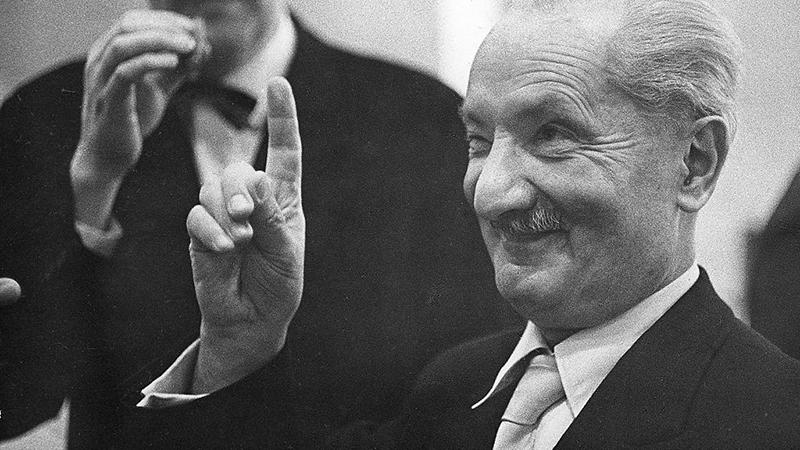Martin Heidegger
Episode #5 of the course Great modern philosophers by Tom Butler-Bowdon
In a nutshell: Human existence is a mystery, and the authentic person is one who reflects on that existence and yet lives in the real world, making the most of their possibilities.
Martin Heidegger is often seen as the greatest philosopher of the 20th century, and his forensic approach to apparently obvious questions or topics continues to have a big impact on contemporary philosophy.
Being and Time (1927) is his signature work. It was famously preceded by a twelve-year “period of silence” and seemed to come from nowhere. In fact, Heidegger had been lecturing to rapt audiences for years, building up underground fame among German students as a truly original thinker. As Hannah Arendt (once his student) famously noted, “There was hardly more than a name, but the name traveled all over Germany like the rumor of a hidden king.”
Notoriously difficult to understand, the best way to tackle Being and Time is to first read around it with one of the many excellent commentaries available. If you just read it cold, you might find Being and Time a quicksand-like experience.
Being and Personhood
At the start of Being and Time, Heidegger notes that the question of “being” had certainly been addressed by ancient and medieval philosophers, but no one had explored it properly. It was almost taken for granted, because everyone “is,” and therefore, we know what it is to “be.” Yet in terms of philosophical analysis, he writes, “the meaning of being is…shrouded in darkness.”
His big question was: What is personhood? What is it like to be a human being in the world, bound by space and time? While for Descartes, the motto for the self was, “I think,” Heidegger’s was, “I care.” His use of the term “care” is not the conventional meaning of emotional sympathy, but more like searching, exploring, making, dealing with, or building something; “care” concerns my place among others in a social or political sense (which includes concern for others) and my own development or unfolding. As a “being-in-the-world,” these cares or concerns tell the world what I am.
“Thrownness” is a crucial idea in Being and Time. A human being is cast into a particular place, time, and family not of their choosing, and life is about making sense of this fall into the realm of space and time. How did I get here? Why am I here? What do I do now? Part of this perplexity is an inbuilt sense of “guilt” or “owing.” We feel some responsibility to do something with our lives and fortunately, come equipped with the capacities for speech and action. Only in using these capacities do we reveal something of ourselves. Though many of our circumstances are simply given to us, there is still plenty of room to make a mark or provide value through expressing our abilities. In this activity is the meaning of our life. Indeed, it would be impossible for life not to have meaning, given the raw materials of consciousness and environment before us. Death is also important to Heidegger because it marks the end of one’s self-showing. The nature of one’s death can itself be a disclosure.
The essential nature of existence, Heidegger remarks, is that it is mine. There is an enormity to this realization, and indeed, the weight of it is such that few people can handle it or grasp what an authentic life would mean for them. The more natural mode of being for a human is to exist as one among many and not to opt for a path of self-realization or tough self-examination. But even for those who do, there is no such thing as a fully “self-made” person.
Final Word
For the modern person, the implication of Heidegger’s work is clear: Though it is tempting to shut yourself off from the world or rise above it through contemplation or meditation, this denies the fact of man being a social and political animal. The appropriate response to life is to throw ourselves into it and along the way, come to conclusions about what is real or true, separate from public opinion. Paradoxically, it is only in admitting ourselves as very much a part of the world that we can shrewdly see the points where we can make a difference. For only humans can help form a world, as well as be in it.
Tomorrow…Soren Kierkegaard and the philosophy of faith.
Recommended book
Being and Time by Martin Heidegger
Share with friends

